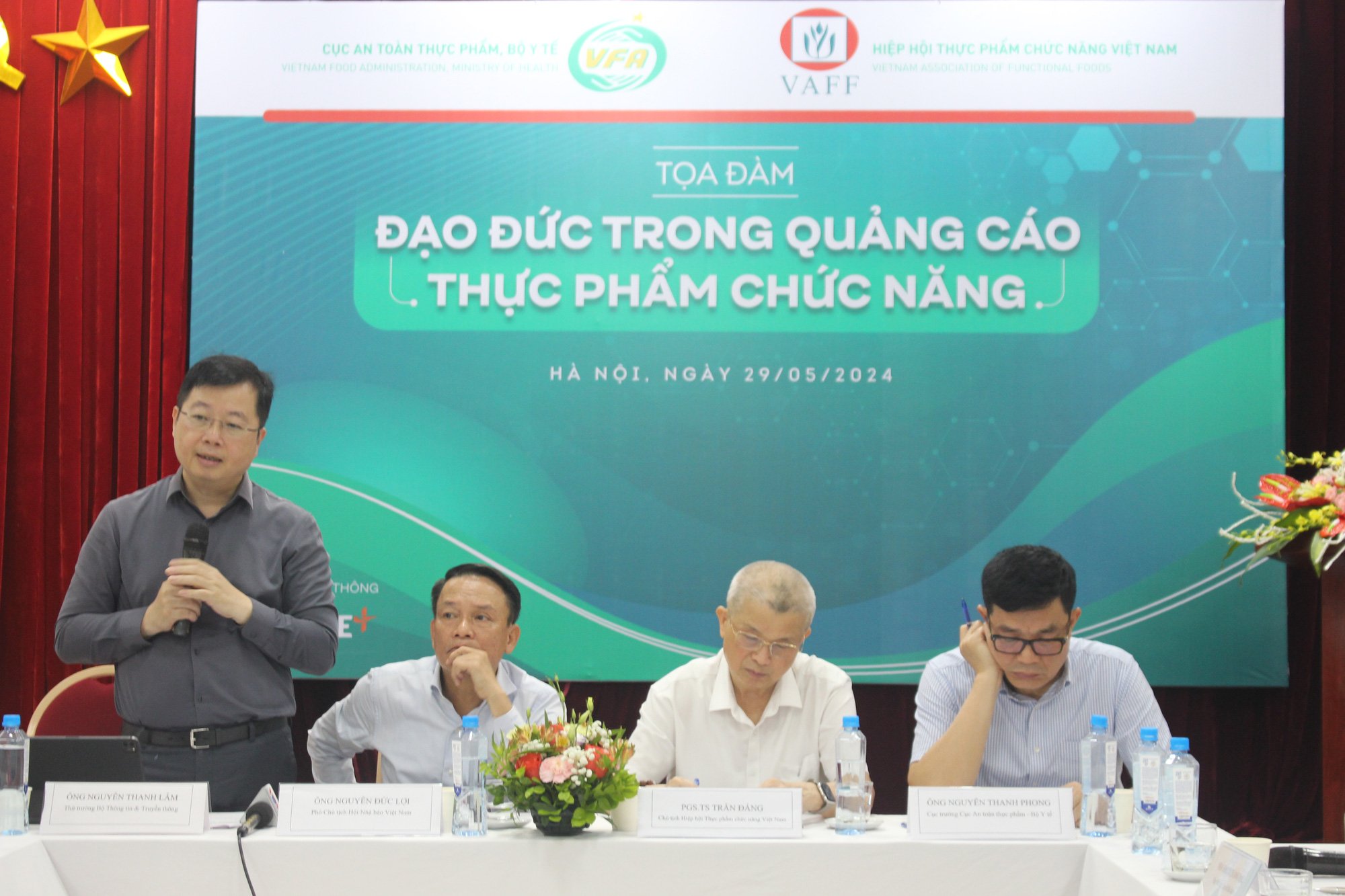
Deputy Minister of Information and Communications Nguyen Thanh Lam shared his views at the seminar on Ethics in Advertising Functional Foods - Photo: D. LIEU
This was the opinion of Mr. Nguyen Thanh Lam, Deputy Minister of Information and Communications, shared at the seminar on Ethics in Advertising Functional Foods, organized by the Food Safety Department and the Vietnam Functional Food Association on the morning of May 29th.
Dietary supplements cannot cure diseases.
The Vietnam Functional Food Association has recently issued a decision on the code of ethics for advertising functional foods. Members of the association must adhere to these regulations to prevent false advertising of functional foods.
Associate Professor Tran Dang, chairman of the Vietnam Functional Food Association, said that while functional food advertising contributes to protecting people's health, the current situation is causing frustration for both industry professionals and consumers.
According to the association's advertising ethics guidelines, there are four types of ethical violations: false, deceptive, or fraudulent advertising; exaggerated or inflated advertising; ambiguous or misleading advertising; and advertising targeting sensitive groups (cancer patients, terminally ill patients).
"There are advertising messages that bombard public perception like bombs: 'Guaranteed complete cure, no charge if not cured; Eliminate type 1 and type 2 diabetes, completely cure high blood pressure,'..."
"No scientific product has such effects. Misleading advertising in the field of functional foods causes extremely dangerous harm to society," Mr. Dang asserted.
Mr. Nguyen Thanh Phong, Director of the Food Safety Department ( Ministry of Health ), also stated that the dangers of deceptive advertising in the healthcare sector are not only financial but also affect the health of patients.
Patients with terminal illnesses who receive early diagnosis and treatment may be cured, or at least have their lives prolonged. However, advertisements promising "curses" mislead consumers, causing them to miss the crucial window for treatment.
"Even products containing banned substances are detected through inspections and referred to the police for criminal prosecution. To further enhance public understanding, media outlets need to strongly promote the idea that functional foods cannot cure diseases," Mr. Phong emphasized.
The infringing brands should be added to a "blacklist".
Speaking at the seminar, Deputy Minister Nguyen Thanh Lam noted that the issue of false advertising of functional foods has been a pressing concern in the community recently.
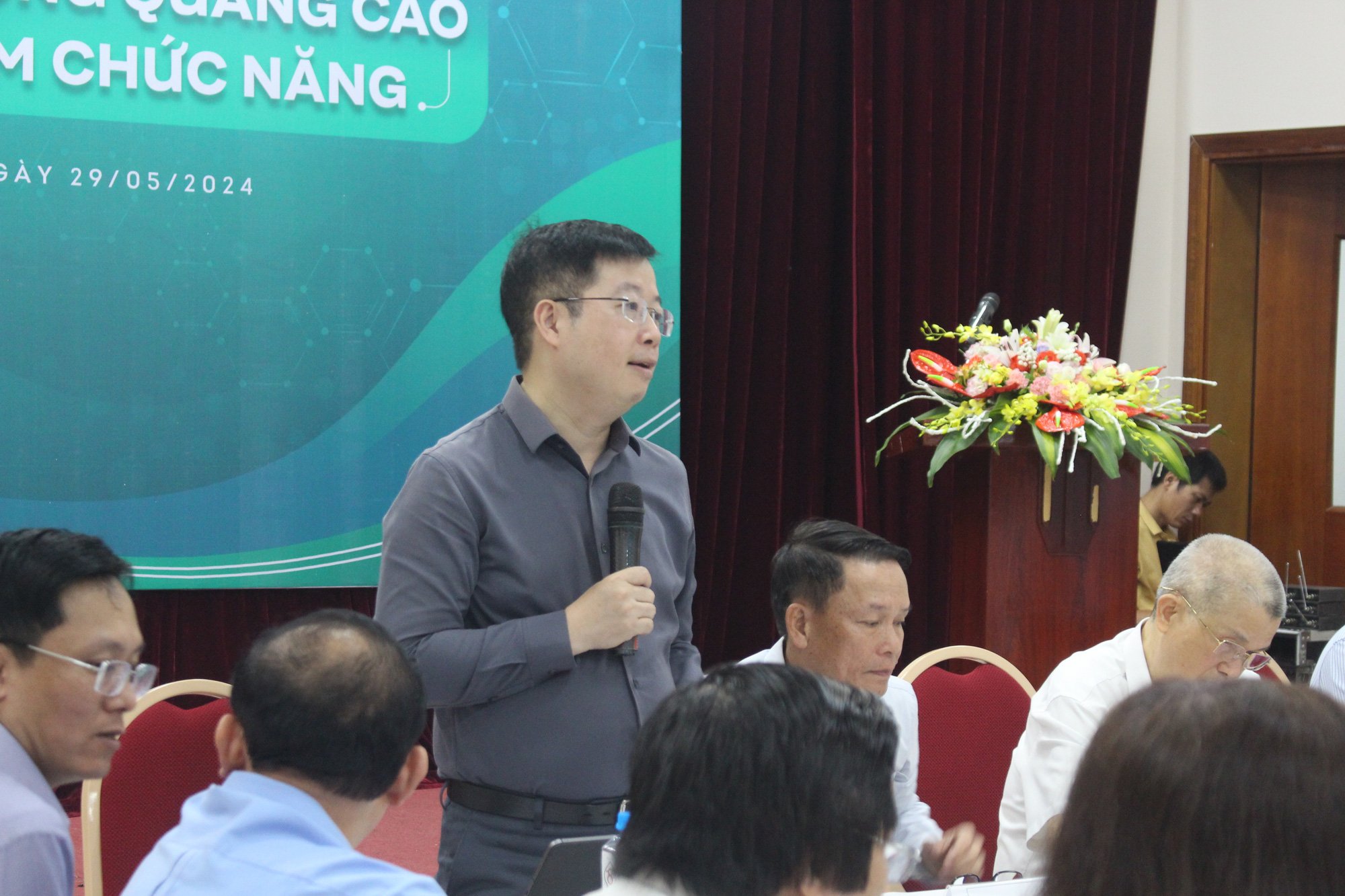
Deputy Minister of Information and Communications Nguyen Thanh Lam shared his views at the seminar - Photo: D. LIEU
Mr. Lam also stated that the advertising of dietary supplements today is not only driven by advertising agencies and cross-border platforms like TikTok and Facebook, but also by artificial intelligence and algorithms. This poses challenges in managing, addressing, and warning consumers.
According to Mr. Lam, to control misleading advertisements for dietary supplements, attention must be paid to the online space. "Currently, there are many measures to deal with domain names and businesses that violate advertising regulations, such as blocking international domain names or imposing domestic penalties."
In addition, we can rank brands according to ethical standards in the advertising field. Alongside this, we need to compile statistics, detect and penalize violations, and put violating brands on a "blacklist" to warn partners and consumers alike. Businesses on this list are more likely to face risks and brand crises," Mr. Lam said.
Mr. Nguyen Xuan Hoang, permanent vice president of the Vietnam Functional Food Association, also said that the association is proposing a "green light - red light" system, where green represents products that do not violate regulations, including advertising, and will be recommended for use by the association. Red represents products that violate regulations and will be recommended for use with caution.
Mr. Nguyen Thanh Phong also stated that the proposal for a "blacklist" of websites violating advertising regulations is feasible. He argued that businesses advertising without an advertising permit, even if the content is not illegal, are still in violation.
For businesses that have received advertising approval but whose advertisements do not conform to the approved content, this is also a violation. These lists of violations can be made public on various platforms to warn the public.
Source: https://tuoitre.vn/can-xep-hang-dao-duc-trong-quang-cao-dua-thuc-pham-chuc-nang-quang-cao-no-vao-danh-sach-den-20240529153219889.htm



![[Photo] Prime Minister Pham Minh Chinh receives Lao Minister of Education and Sports Thongsalith Mangnormek](/_next/image?url=https%3A%2F%2Fvphoto.vietnam.vn%2Fthumb%2F1200x675%2Fvietnam%2Fresource%2FIMAGE%2F2025%2F12%2F16%2F1765876834721_dsc-7519-jpg.webp&w=3840&q=75)
![[Image] Leaked images ahead of the 2025 Community Action Awards gala.](/_next/image?url=https%3A%2F%2Fvphoto.vietnam.vn%2Fthumb%2F1200x675%2Fvietnam%2Fresource%2FIMAGE%2F2025%2F12%2F16%2F1765882828720_ndo_br_thiet-ke-chua-co-ten-45-png.webp&w=3840&q=75)
![[Photo] Prime Minister Pham Minh Chinh receives the Governor of Tochigi Province (Japan)](/_next/image?url=https%3A%2F%2Fvphoto.vietnam.vn%2Fthumb%2F1200x675%2Fvietnam%2Fresource%2FIMAGE%2F2025%2F12%2F16%2F1765892133176_dsc-8082-6425-jpg.webp&w=3840&q=75)
![[Live] 2025 Community Action Awards Gala](/_next/image?url=https%3A%2F%2Fvphoto.vietnam.vn%2Fthumb%2F1200x675%2Fvietnam%2Fresource%2FIMAGE%2F2025%2F12%2F16%2F1765899631650_ndo_tr_z7334013144784-9f9fe10a6d63584c85aff40f2957c250-jpg.webp&w=3840&q=75)






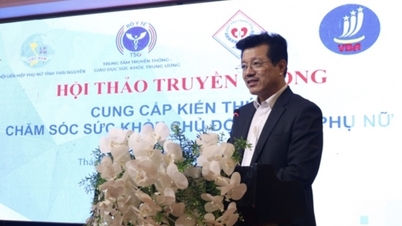

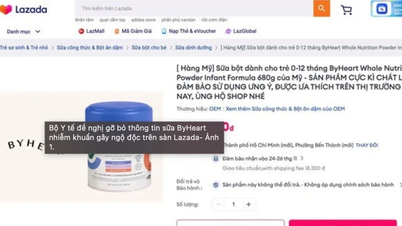

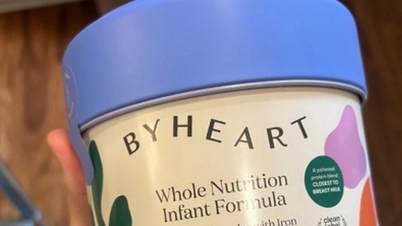




















































![[Photo] Prime Minister Pham Minh Chinh attends the Vietnam Economic Forum 2025](https://vphoto.vietnam.vn/thumb/402x226/vietnam/resource/IMAGE/2025/12/16/1765893035503_ndo_br_dsc-8043-jpg.webp)



































Comment (0)